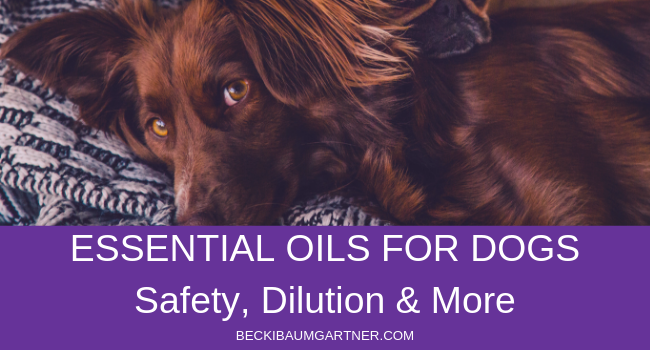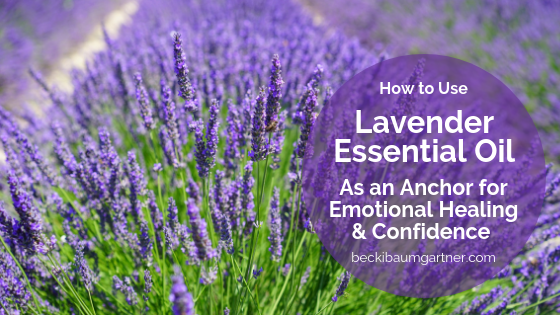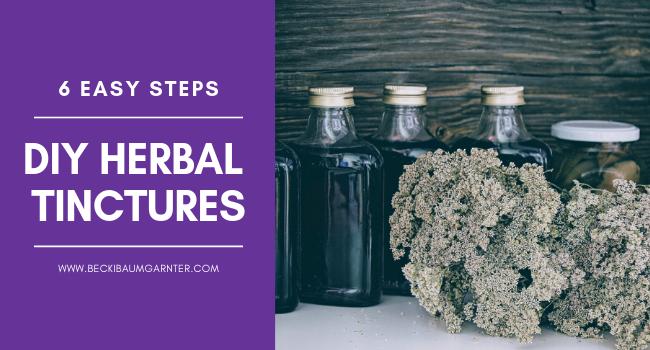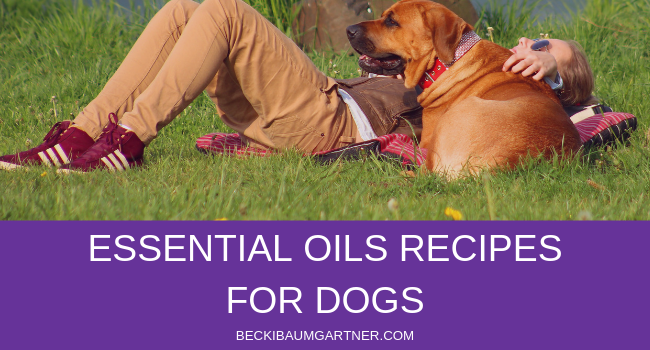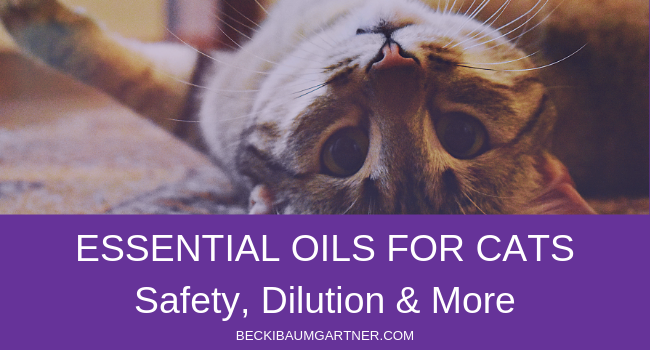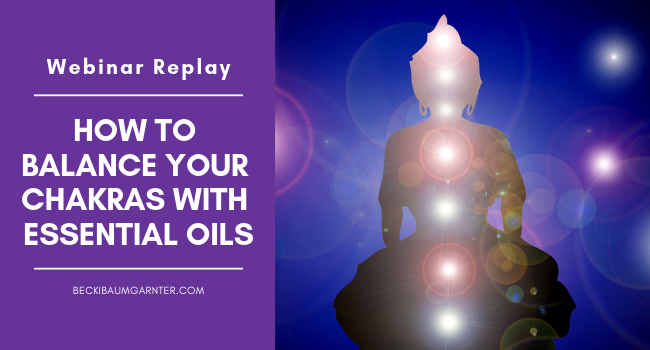When using essential oils with dogs, the first thing you must do is get top quality oils. Do your research! Make sure your oils are steam-distilled or cold-pressed.
Make sure your oils are pure and don’t have any added chemicals or toxins. Many oils do! If your oils aren’t pure, there’s always a risk of chemical reaction, even if you’re only diffusing.
My top choice of essential oils to use with dogs is doTERRA. DoTERRA makes it easy to evaluate oil quality. All you have to do is enter the SKU# on the bottom of the vial at the Source to You Website to see each batch’s quality reports.
DoTERRA also has a vet panel, and for some time now has been studying the reactions of essential oils with animals in their clinics.
The information here is extrapolated from Dr. Janet Roark, DVM’s website and the following books:
- Spoil Your Pet by Mia K Frezzo DVM
- Animal Desk Reference II by Melissa Shelton DVM
Both books have specific recipes with dilution ratios and everything you need to know to ease your dog’s specific ailments with essential oils.
Dr. Roark and Dr. Frezzo are both on doTERRA’s Veterinary Panel. Dr. Shelton is not on doTERRA’s
In 2018, I had the honor of attending the annual AHVMA (American Holistic Veterinary Association) conference. I also had the pleasure of meeting Dr. Shelton personally, and got an autographed copy of her Animal Desk Reference II. She’s amazing as a person and a veterinarian!
In addition, had the privilege of attending her class on Essential Oils for Pets, where she explained her studies in using oils with dogs.
The main point both vets make is that it never hurts to dilute essential oils for your dog.
In fact, for dogs, oils often work just as well (if not better) highly diluted as they would less diluted.
To be ultra-safe, start out using specific recipes or recommendations from Spoil Your Pet or Animal Desk Reference II.
The info below is general information on how to use oils to help your dog.
Essential Oils Safety For Dogs
Below are general guidelines for using essential oils with dogs.
- Dilute when using topically
- Know your dog’s health conditions
- Keep oils AWAY FROM your dog’s
- Eyes
- Ears
- Nose
- Genitals
- Aromatically, use a cold water diffuser.
- Use oils with caution around pets who are:
- On certain medications
- Very Young
- Nursing
- Pregnant
- Avoid topical use if your dog is taking a topical pharmaceutical (flea/tick meds included) or dermal patch.
- Some essential oils products like toothpaste,
beadlets , andsoftgels contain xylitol. Read your labels! Keep all xylitol-containing products away from your dog. - Use only CTPG Pure Therapeutic Grade Essential Oils.
- When trying a new oil, keep an eye on your dog’s behavior. Just like humans, some dogs have unusual sensitivities to certain plant families.
- If an adverse reaction occurs, dilute with a carrier oil. The most common adverse reaction is skin irritation. Most reactions resolve on their own within 24–48 hours.
- Stop using any particular oil if your dog shows signs of:
- Abnormal behavior
- Drooling
- Dizziness
- Face rubbing
- Whining or excessive meowing
- Vomiting
- Diarrhea
Oils to Avoid Using With Dogs Topically and Internally
As a general rule, do not use the following oils topically or internally on
All doTERRA oils are fine for dogs in the diffuser. And, they are much better than toxic artificial scents!!
The following list of oils to avoid topically and internally is from Dr. Janet Roark, DVM’s website:
- Birch – Is high in methyl salicylate, which can be toxic to dogs
- Melaleuca (Tea Tree) – Toxicity most often occurs when well-meaning owners apply 100% oil as a means of parasite control. Marjoram is a good oil to use in place of melaleuca. Marjoram is calming, has antispasmodic effects, and is strongly antibacterial.
- Wintergreen – Is high in methyl salicylate, which can be toxic to dogs
The following oils are considered “hot” oils, should be used with caution and highly diluted:
- Oregano
- Cassia
- Cinnamon
- Clove
- Rosemary
- Thyme
Essential Oils Dilution Ratio for Dogs
Dogs are pretty easy when it comes to using essential oils.
Your dog’s body processes essential oils much like your body does.
Of course, there’s always a range when working with how supplements affect people and pets.
The recommended topical use dilution ratio range for dogs is:
- High Dilution: 2 drops of essential oil to 1 tablespoon of carrier oil
- Low Dilution: 1 drop of essential oil to 1 teaspoon of carrier oil
- Hot Oils: 2 drops of essential oil to 1 tablespoon of carrier oil
- Puppies & Small Dogs: For puppies less than eight (8) weeks old and dogs 20 lbs: 2 drops of essential oil to 1 tablespoon of carrier oil
- Note: Low dilution uses a teaspoon of carrier oil, the other dilutions use a tablespoon of carrier oil
According to Dr. Frezzo, most oils (except for hot oils) are safe to use NEAT on dogs over 20 lbs. NEAT means you apply with no dilution.
To do so, place one drop of undiluted essential oil in the palm of your hand. Rub your hands together until much of the oil has absorbed into your palms, then pet
That being said, starting out with high dilution is always safest. Plus, it will save you money!
Remember, e
See if the high dilution gives you results and work from there. You can always increase the essential oil concentration if you don’t get the desired effect. But, it’s really hard to remove an essential oil once it’s already been absorbed!
Some good carrier oils are:
- Fractionated Coconut Oil
- Extra Virgin Olive Oil
- Almond Oil
Also, please remember that each dog is an individual. Your dog may sensitive to certain oils other dogs are not. Keep an eye on how your dog reacts.
If your dog has an illness, essential oils can be a great tool in your arsenal. However, if your dog’s health situation is serious you should always work with your veterinarian!
I know finding a vet that works with essential oils is sometimes difficult.
If you’re in the Nashville, TN area, Dr. Marc Smith of Natchez Trace Veterinary Services is integrating essential oils into his practice. If you’re outside of Nashville, he offers phone consultations and will co-care with your current vet. I’m Dr. Smith’s Herbalist and Veterinary Essential Oils Coach.
Dr. Smith’s practice philosophy is Practical Veterinary Medicine with Integrative Options. He combines Traditional Veterinary Medicine & Surgery with Traditional Chinese Veterinary Medicine, Alternative Medicine, and Herbalism for Powerful Pet Care.
If you have any questions or if I can help you in any way, just let me know!
